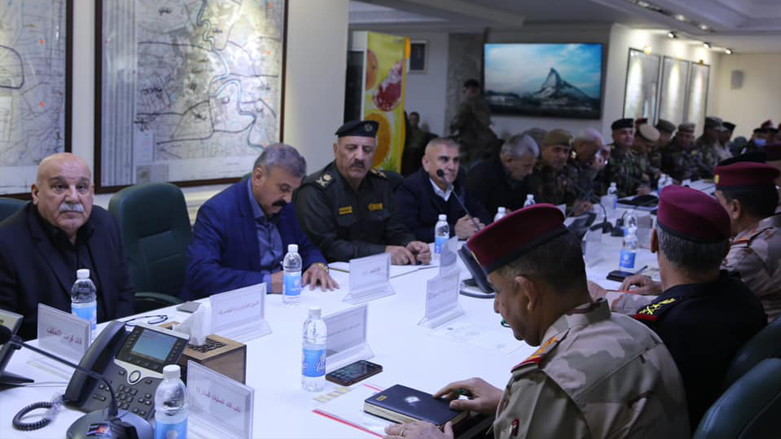'Peshmerga and Iraqi Army to start joint operations in disputed territories': Peshmerga official

ERBIL (Kurdistan 24) – A senior delegation from the Kurdistan Region Ministry of Peshmerga met with the Iraqi Joint Forces Operations Command in Baghdad on Saturday and discussed launching joint operations between the Peshmerga and the Iraqi Army in the disputed areas.
"In the meeting that was held in the Iraqi Joint Forces Operations Command headquarters, both sides emphasized the necessity of resuming joint military work in the disputed areas," the media office of Lieutenant Colonel Jabar Yawar, Secretary-General of the Ministry of Peshmerga, stated.
"Fortunately, after hours of discussions and exchanging views over the situation on the ground in the disputed areas, both sides mutually decided to start joint operations of Peshmerga forces and the Iraqi army in the disputed areas."
These joint operations will target ISIS hideouts in the disputed territories where the militants are active and from where they have been carrying out attacks against civilians and Peshmerga forces.
Read More: ISIS still 'threat to the Kurdistan Region, Iraq, and the whole world:' Peshmerga official
"Heading a senior delegation from Kurdistan Region's Ministry of Peshmerga that included senior Peshmerga commanders, Yawar flew to Baghdad on early Saturday to meet with top Iraqi military commanders," Yawer's media office stated.
Officials from Kurdistan Region have long called for a joint security plan between Peshmerga and Iraqi forces to fill the multiple security gaps referenced by Yawar in areas disputed by Baghdad and Erbil.
Although Iraq had declared a "final victory" against the Islamic State in December 2017, the organization's fighters continue to carry out regular attacks. They include bombings, assassinations, and kidnappings, particularly in remote villages and regions, where security forces have difficulty monitoring the group's movements.